Trump orders 90-day tariff pause, but hits China with 125pc levy
Donald Trump has reduced levies for US trading partners to a ‘baseline’ rate of 10 per cent, but slapped even higher levies on China.
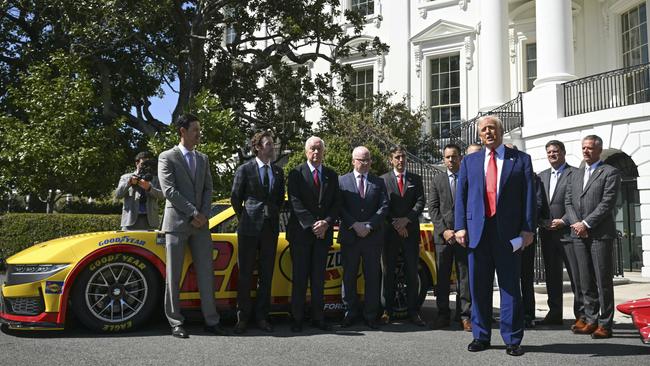
President Donald Trump announced a 90-day pause on his sweeping tariffs, giving at least 75 countries a 10 per cent baseline but hitting China with even higher levies after Beijing hit the US with a retaliatory levy of 84 per cent.
Speaking to reporters, Mr Trump said he had agreed the pause and baseline for “all the people who didn’t retaliate. But China, they did retaliate.”
Earlier, writing on his Truth Social platform, Mr Trump wrote: “Based on the lack of respect that China has shown to the World’s Markets, I am hereby raising the Tariff charged to China by the United States of America to 125%, effective immediately.”
Saying that more than 75 countries had asked for negotiations over the tariffs, Mr Trump wrote he “authorised a 90 day PAUSE, and a substantially lowered Reciprocal Tariff during this period, of 10%, also effective immediately.”
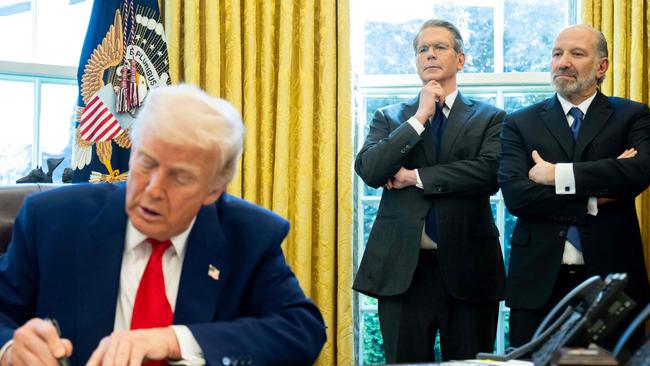
However he said he was sure Chinese President Xi Jinping will “do a deal” and resist the temptation of escalating their trade war.
Speaking in the Oval Office of his decision, Mr Trump said: “We had to take the medicine, had to go through the operation and that’s what we are doing.”
He added: “President Xi is one of the smartest people in the world and I don’t think he will allow (escalation) to happen.”
“We are very powerful. We have weaponry,” he said. “But I think President Xi is a man who knows exactly what has to be done. I think he’s going to want to do a deal. There will be a telephone call and we’ll be off to the races.”
He said he decided to pause the bulk of his reciprocal tariff program because of growing concern about the economy.
“They were getting yippy,” Mr Trump said when asked why he enacted a temporary rollback. “They were getting a little bit yippy, a little bit afraid.”
However, he added, “Nothing is over yet,” saying “somebody” needed to take the steps that he took.
“China wants to make a deal,” he said, adding the Chinese were “proud” people and were “in the process of determining how to make a deal with the US.”
After Mr Trump announced his latest pivot, stocks soared, with all three major indexes heading for one of their best days on record. The tech-heavy Nasdaq roared ahead 12 per cent, its best day in 24 years. The S & P 500 added 9.5 per cent in its biggest gain since 2008, while the Dow Jones Industrial Average moved ahead 7.9%per cent, its biggest day since 2020. The 2,963 point rally in the blue-chip index was its largest point-gain on record, according to Dow Jones Market Data.
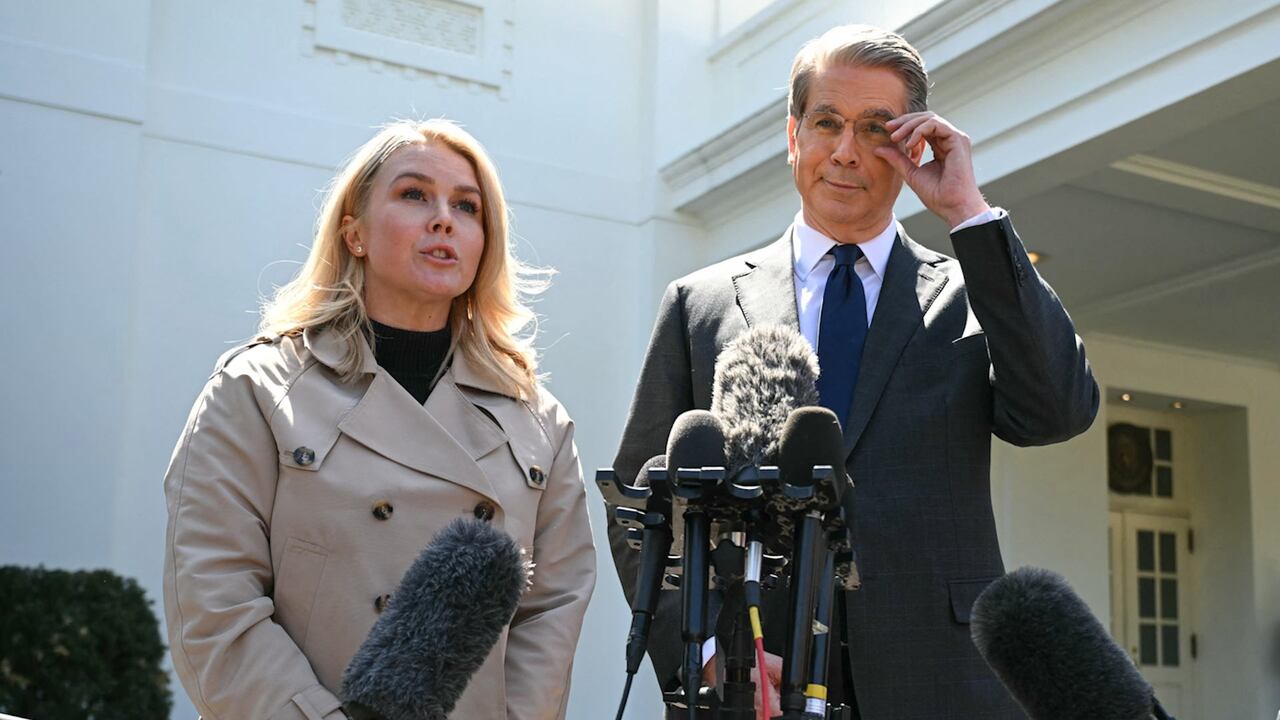
US Treasury Secretary Scott Bessent said Mr Trump’s “strategy” had played out.
“This was his strategy all along, and you might even say that he goaded China into a bad position,” Mr Bessent told reporters at the White House after Mr Trump’s abrupt backtrack.
Countries which did not retaliate “will be rewarded”, he added.
Earlier the US President had brushed off global market panic after China and the European Union announced retaliatory tariffs, telling Americans to stay “cool” despite his spiralling trade war.
Mr Trump dug in after Beijing slapped 84 per cent levies on US goods, just hours after his latest salvo of tariffs took effect on dozens of trading partners around the world.
“BE COOL! Everything is going to work out well. The USA will be bigger and better than ever before!” Trump posted on his Truth Social platform following the Chinese and EU counter-attacks.
Mr Trump said world leaders were rushing to negotiate “tailored” deals with the United States, with Japan and South Korea among those sending delegations to Washington.
“I’m telling you, these countries are calling us up kissing my ass,” Mr Trump told a dinner with fellow Republicans on Tuesday night.
Overnight (AEDT) Beijing counterpunched with a further 50 per cent tariff hike on American goods, matching the latest hit from the Trump administration and taking total tariffs on US goods to 84 per cent.
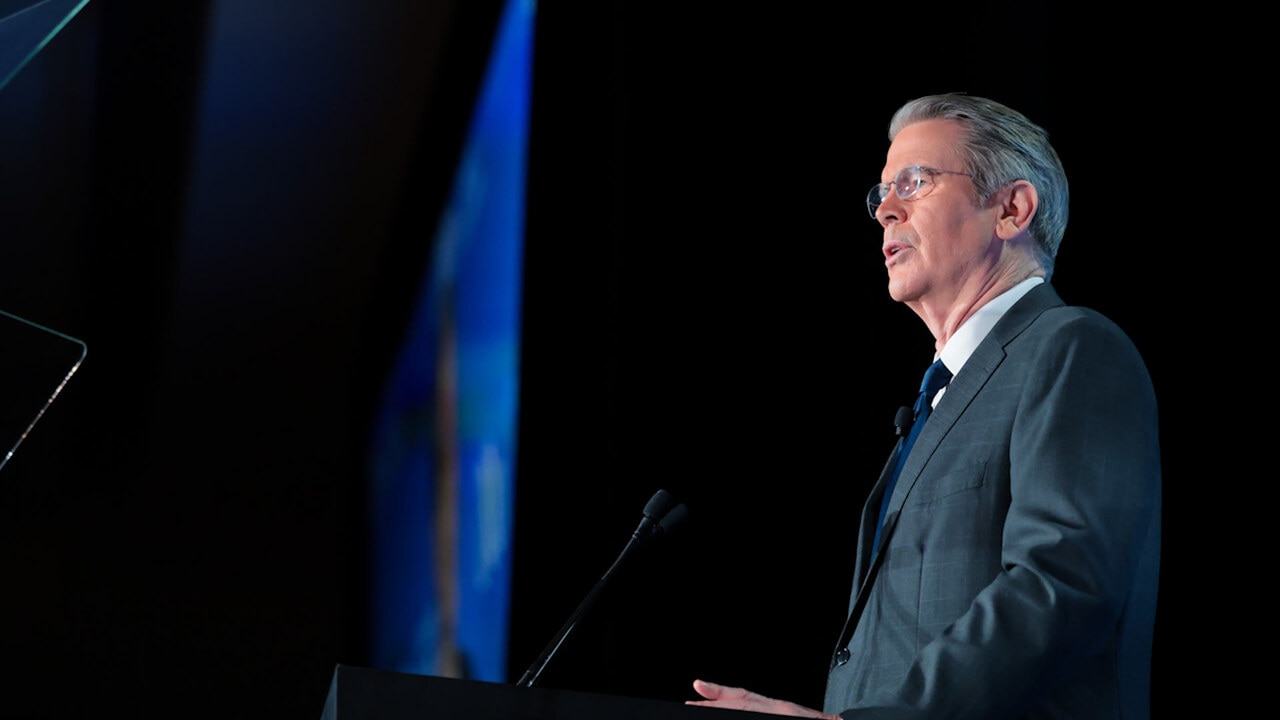
“The US’s practice of escalating tariffs on China is a mistake on top of a mistake, which seriously infringes on China’s legitimate rights and interests and seriously damages the rules-based multilateral trading system,” China’s national news agency Xinhua said, announcing the new tariffs on late Wednesday night.
“China urges the US to immediately correct its wrong practices, cancel all unilateral tariff measures against China, and properly resolve differences with China through equal dialogue on the basis of mutual respect,” the Beijing mouthpiece said.
Meanwhile European Union members have approved an initial list of US products to target with levies, including soybeans, motorcycles and beauty products.
“These countermeasures can be suspended at any time, should the US agree to a fair and balanced negotiated outcome,” a commission statement said.
China’s announcement to hike tariffs from 34 per cent to 84 per cent from Thursday came hours after President Donald Trump’s more than 100 per cent levy hit on Beijing went into effect, amid warnings the new impost would knock almost 2.5 per cent of GDP off Australia’s biggest trade partner.
America and China are in an escalating cycle of tit-for-tat trade hits as Mr Trump tries to set up China as a cautionary example for other countries considering hitting back over his sweeping tariffs, while China’s President Xi attempts to portray himself as a strongman who won’t be pushed around.
China filed a complaint with the World Trade Organisation over Mr Trump’s tariffs late Wednesday and has warned its citizens to “fully assess the risks” before travelling or studying in the US.
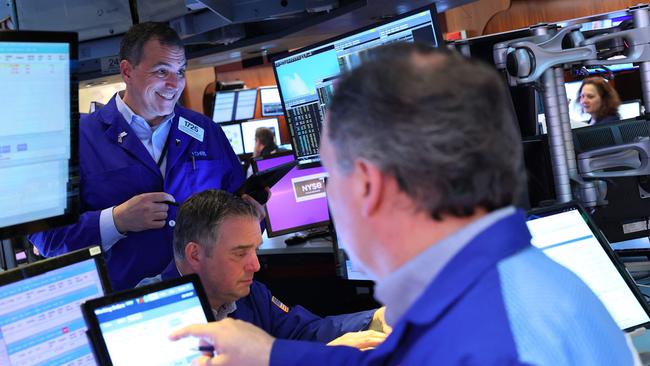
Market turmoil
The new 50 per cent tariff hike on China and reciprocal rates on almost 60 other US trade partners began at midnight, American east coast time (2pm Wednesday, AEST), sending stockmarkets around Asia into the red. The ASX 200 closed down 1.8 per cent on Wednesday, while Tokyo’s Nikkei 225 was down almost 4 per cent and Hong Kong’s Hang Seng dropped 0.4 per cent.
Markets on the Chinese mainland were flat, as China’s state-owned giants, including State Grid and the China Three Gorges Corporation, announced share buybacks, following instructions from Beijing.
“It was a mistake for China to retaliate. The President, when America is punched, he punches back harder,” White House press secretary Karoline Leavitt said hours before the tariffs were implemented.
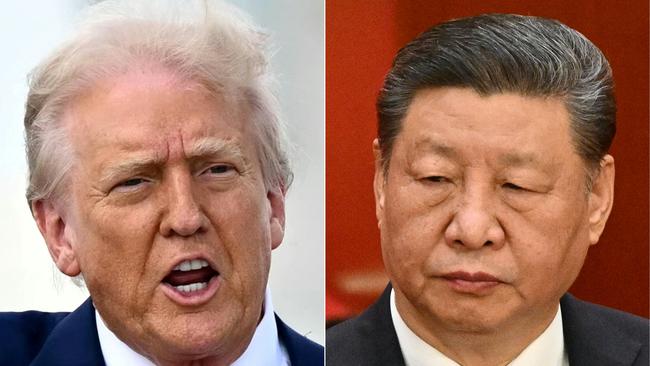
The latest hit takes total tariffs on Chinese goods to over 115 per cent and follows Beijing’s decision to respond to Mr Trump’s earlier 34 per cent tariff with a reciprocal tariff on all US imports to China at the same rate.
None of the other 60-odd countries hit with “reciprocal” tariffs above 10 per cent have announced tariffs against the US, as many attempted to negotiate with Mr Trump and his team.
After triggering an international market funk with his “Liberation Day” announcement last week, Mr Trump defended his approach as preliminary negotiations began with South Korea on Tuesday, following talks the day before with fellow US ally Japan.
“We’re doing very well in making – I call them tailored deals, not off the rack, these are highly tailored deals,” Mr Trump said at the White House on Tuesday.
He said China’s counter-attacks were a mistake, but believed they would ultimately change their approach. “China also wants to make a deal, badly, but they don’t know how to get it started. We are waiting for their call,” Mr Trump said.
In a phone call on Tuesday with European Commission President Ursula Von der Leyen, Chinese Premier Li Qiang said the world’s second-biggest economy had a raft of policy tools to “fully offset” external shocks.
Xi’s deputy denounced Washington’s “unilateralism, protectionism and economic bullying” and cast Beijing’s counter-attack as an effort to defend international trade rules and global fairness.
Beijing wants to form a united front with Brussels against the tariffs, but many in Europe are worried that a wave of cheap Chinese imports will flood its market as the new tariffs price them out of the US.
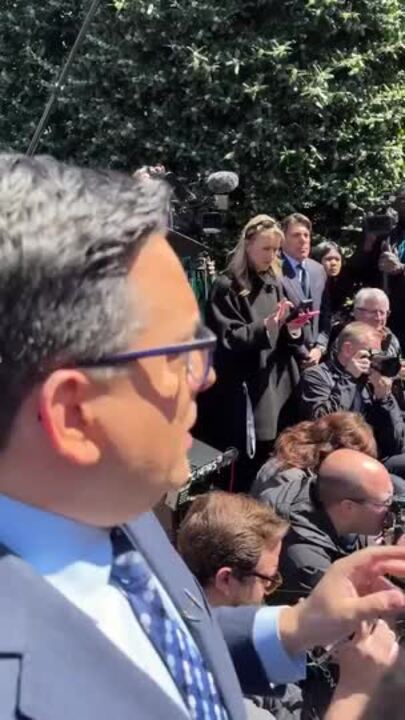
Chinese government-controlled newspapers on Wednesday amplified Beijing’s vow to “fight to the end” and signalled further trade strikes were coming.
In an editorial, the China Daily had flagged substantial tariffs on “US agricultural products such as soybeans and sorghum; a ban on US poultry exports to China because of the serious bird flu epidemic in the US; and suspending its fentanyl co-operation with the US.”
Citing sources “in the know”, the party state masthead said other likely measures included “restricting US companies from participating in procurement and restricting business co-operation such as legal consulting, where the US has a long-term trade surplus in services with China; banning the import of US films; and investigating the benefits gained by US companies from intellectual property rights in China”.
There was no mention of the 50 per cent hike Beijing announced late on Wednesday.
Henry Gao, an associate professor of law at Singapore Management University and expert on China’s international trade, said many of the threatened measures would backfire.
“Retaliating in this way would likely hurt Chinese firms more than their American counterparts,” Gao said.
Based on China’s behaviour in its last trade war with Trump, he predicted that, despite Beijing’s combative rhetoric, it would be at the negotiating table in “two months – tops”.
Analysts at Goldman Sachs estimated America’s new 50 per cent tariff would knock a further 0.9 per cent off China’s GDP. The Goldman Sachs team estimated the earlier 54 per cent tariff would shave 1.5 per cent points off China’s growth, making for a combined hit of 2.4 per cent unless Beijing steps in with stimulus measures.



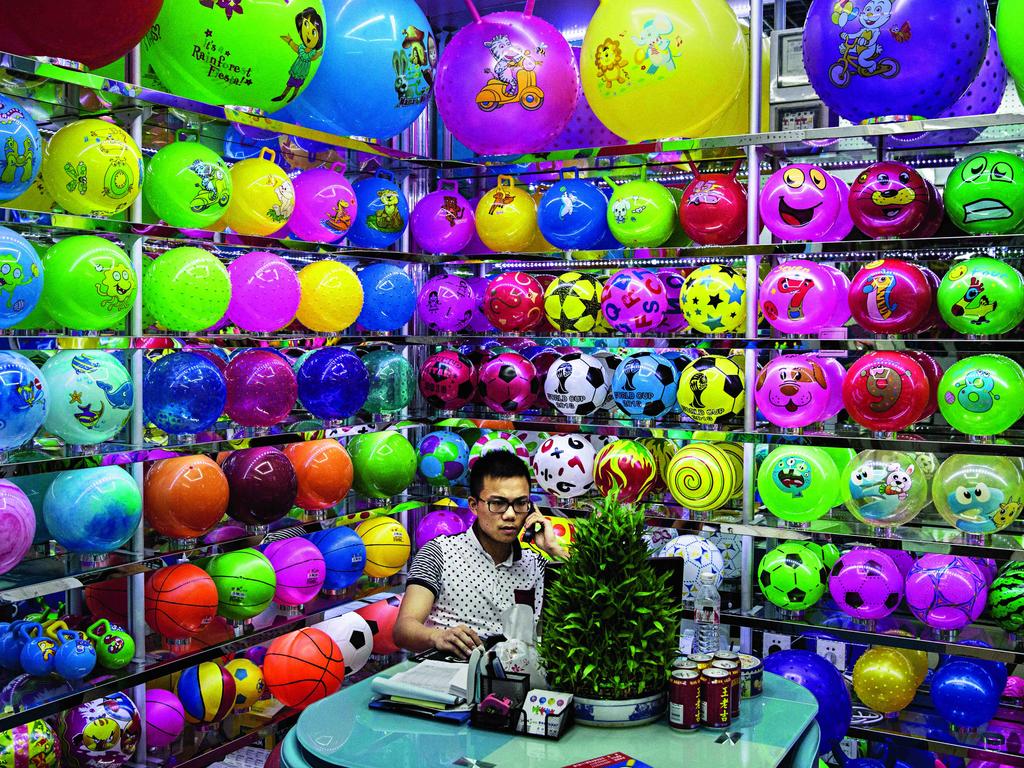


To join the conversation, please log in. Don't have an account? Register
Join the conversation, you are commenting as Logout